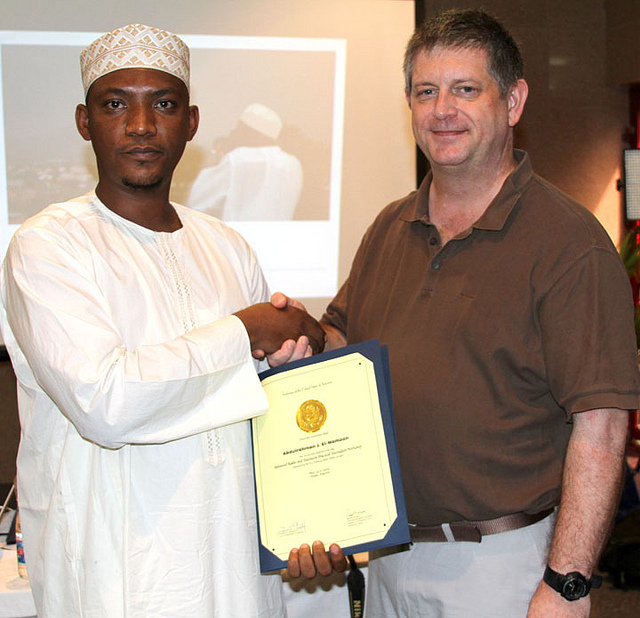Indeed, human beings have all the reasons to celebrate their existence in this world. This is why several days out of the 365 days in a year have been set aside to mark various celebrations, to commemorate various events, personalities and achievements and to ponder and strategize on how to address various challenges facing us in this world.
The 3rd of May every year is specially reserved as World Press Freedom Day, which is used to assess the worldwide state of media freedom, create awareness of the importance of freedom of the press, pay tribute to journalists who died in the line of duty, recognize individuals, organisations or institutions that have made an outstanding contribution to the defence or premonition of press freedom, and ultimately remind governments of their duty to respect and uphold the fundamental human right to freedom of expression.
The World Press Freedom Day was first declared by the United Nations’ General Assembly in December 1993 to entrench article 19 of the Universal Declaration of Human Rights, which centered on the need for the observance of freedom of expression all over the world. Press freedom as described in the Universal Declaration entails everyone’s right to hold opinions without interference and to seek, receive and impart information and ideas through any media and regardless of frontiers.
The 2012 World Press Freedom Day with the theme: “Media freedom has the power to transform societies” was celebrated all over the world in different moods that characterized the different states of press freedom obtained in different parts of the world. At the top, the United Nations marked the Day as a significant gain in view of the recent Middle-East and North African revolution, which underscored the power for aspirations of rights when combined with new and old media. Reporters Without Boarders however, marked the day by condemning attacks on journalists worldwide, which negate the fundamental principles of press freedom. In Nigeria, the day could not have come at a more inauspicious time, when media houses and practitioners were targets of fatal attacks and imminent threats, following the simultaneous bomb-attacks on the offices of three national dailies in Abuja and Kaduna, in addition to more threats on other print and electronic media establishments across the country. It is rather sad, that journalists, who are supposed to be protected and given due regards by all even during war, have now turned to be the prey. This unfortunate development is indeed a great challenge to the attainment of media or press freedom in Nigeria.
This highly unhealthy trend has added to the already existing legal and extra-judicial constraints that block the country’s journey to the attainment of a significant level of press freedom. Even with the Freedom of Information (FOI) Act in place, the government through the various regulatory agencies, sometimes still abuse the various control measures under the guise of laws against treason, sedition, defamation among others. But ultimately, poor financing or unavailability of adequate funds could be described as the biggest obstacle against full attainment of press freedom in the Nigeria. Many media establishments and practitioners are often left with no option but to compromise their fundamental professional ethics and right to freedom of expression in order survive. Like the popular saying: “you cannot bite the hands that feed you”, this fact often stifle the independence of many media establishments and practitioners, thereby forcing them to mortgage their professionalism and responsibility to the public in order to remain in existence. While in other instances, some journalists and media outfits subject themselves to self-censorship especially in regards to government media, even where there is no apparent threat.
However, it is important to note that there is no absolute freedom anywhere in the world. Press freedom of course means freedom under the law. And journalists must be able to define their freedoms in any situation, because where one person’s freedom begins could be where another person’s freedom ends. Journalists should always avoid abusing their freedom by ensuring high level of professionalism and socially-responsible practice.
The role of the media in any civilized society cannot be over emphasized, and a free press is a prerequisite to any democratic system. The very impressive role played by the media between 1999 to date in the Nigerian fight against corruption and ensuring transparency and accountability in public dealings is indeed something to reckon with. Similarly, the media plays a very crucial role in preaching peaceful co-existence and ethno-religious tolerance and harmony, giving voice to the voiceless, sensitizing the public on elections, beneficial government programmes and policies as well as promoting prudence and good governance.
It is clear that press freedom, which promotes openness and deplores secrecy in all forms of official business and public relations is indeed critical to the socio-economic and political development of any nation. In fact, a nation’s level of development can be gauged by looking at the level of freedom its media enjoy. It is therefore imperative for the government and the public on one hand, to ensure that such freedoms are properly guarded, and the journalists and media establishments on the other hand, to ensure responsible practice.
While the world celebrates Press Freedom Day in the 21st century, Nigerian media should be able to discharge their responsibilities without any interference, threat or any form of intimidation either from government or any section of the society. The press should be regarded as sacred and a neutral body that has a responsibility only to the public and not any other narrow interest, and in return, the public must ensure the safety of lives and wellbeing of the journalists.
